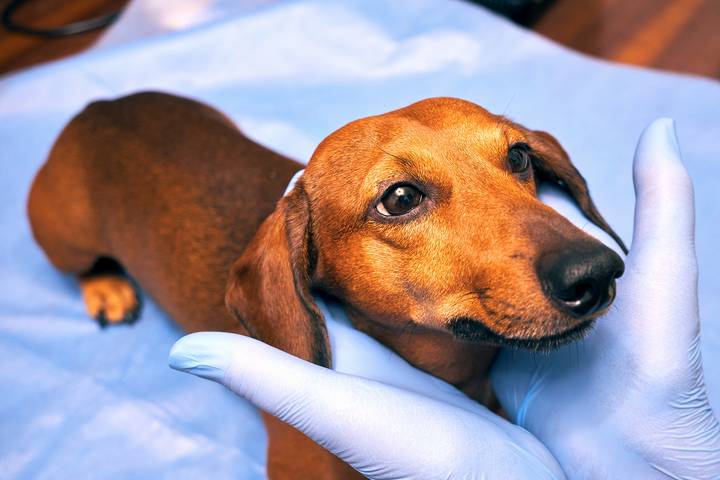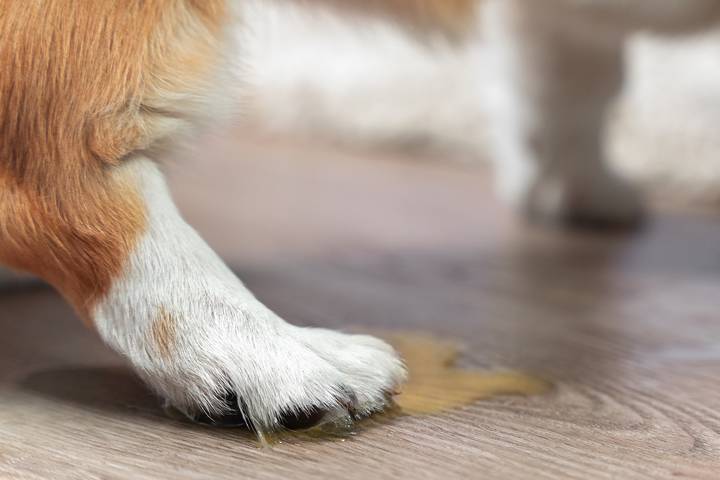We love dogs, and dogs love us. They would surely be more than happy to talk to us if they could, but since they can’t, it’s up to us as dog owners to try to figure out what our furry friends want and how they are feeling.
If you notice changes in your dog’s behaviour lately, you might wonder if something is wrong with him. For serious problems, you will need to take your dog to animal urgent care immediately. For less significant issues, you may use your knowledge to assess the severity of your dog’s ailing health.
If you want to know how to tell if your dog is sick, look out for these signs.
1. Vomiting or diarrhea

If your dog vomits just once, it could simply be a sign that he ate something he was not supposed to eat. But if your dog vomits repeatedly, you need to see a veterinarian. The vomiting could be due to a viral or bacterial infection, and your dog might need treatment.
Persistent diarrhea is another sign that your dog might be sick and that he needs to see a veterinarian. It could be caused by parasites, an infection, or something more serious such as cancer.
2. Coughing and sneezing

Coughing, sneezing, and trouble breathing can all be symptoms of a respiratory condition such as canine flu or kennel cough. But it could also indicate that your dog has chronic bronchitis or heart disease, so seeing a veterinarian is important.
If you hear some sort of honking noise when your dog coughs, it could be a sign of tracheal collapse. This condition most frequently affects small dogs such as chihuahuas, Yorkshire terriers, pugs, and Pomeranians.
3. Bad breath

It’s not uncommon for dogs to have bad breath. But if your dog’s breath is stinky, it could be a sign he is suffering from digestive issues or dental disease. Look out for other signs, such as copious drooling and difficulty chewing.
Brushing your dog’s teeth and giving him dental chews could solve the problem, but he might also need professional dental care.
4. Frequent scratching and licking

Itchy skin, scratching, rashes, hair loss, and licking can indicate something wrong with your dog.
Fleas, skin infections, or allergies could cause these symptoms. Your dog needs to see a veterinarian who can determine the cause of his skin issues and provide the right treatment. This treatment could involve anti-parasitics, steroids, allergy medications, or antibiotics.
5. Urinating or defecating in your home

It’s normal for a puppy to have at least a few accidents when you take him home. But you should be concerned if your adult dog suddenly starts urinating or defecating on the floor.
This unusual behaviour could be caused by bladder stones, a urinary tract infection, or an illness that needs to be treated.
Of course, if you notice blood in your dog’s urine or stool, it’s important to see a veterinarian as quickly as possible.
6. Increased or decreased drinking and urinating

If your dog is constantly thirsty, it could be a symptom of a problem such as diabetes, kidney disease, or hormonal issues. You should also be concerned if your dog drinks much less water than usual.
If your dog urinates more often than usual or is straining to urinate, this is also a bad sign. Take him to the vet for a health checkup.
7. Loss of appetite

If your dog has always been a picky eater, you should not get worried just because he misses a meal occasionally. But if your dog has always had a big appetite, a sudden loss of appetite could indicate that he is sick and needs some attention.
If your dog’s loss of appetite comes with symptoms such as bad breath, vomiting, weakness, fever, or lethargy, he could have a serious disease.
8. Sudden change in behaviour

When a dog is in pain or simply not feeling well, his behaviour can change suddenly. A peaceful dog could become agitated. An active dog could become lethargic, and a kind and friendly dog could become aggressive.
A sick dog could also change his daily routine, or he could growl whenever you try to touch the part of his body that hurts.
If you notice some alarming changes, speak with your veterinarian.
9. Decreased mobility

Decreased mobility, stiffness, limping, or a reluctance to get up are all signs that something is wrong and your dog is in pain. It could be due to a broken bone, arthritis, or health issues.
Remember to never give any pain medication meant for humans to your dog, as it could do more harm than good. If your dog is in pain and needs medication, take him to the veterinarian.

